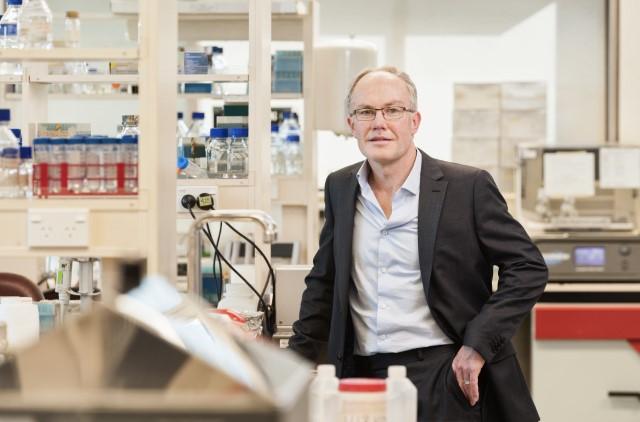
Credit: University of Otago
University of Otago scientists are part of an international research collaboration which has made an important discovery in the quest to lower global agricultural methane emissions.
Professor Greg Cook, Dr Sergio Morales, Dr Xochitl Morgan, Rowena Rushton-Green and PhD student Cecilia Wang, all from the Department of Microbiology and Immunology, are members of the Global Research Alliance on Agricultural Greenhouse Gases that has identified new processes that control methane production in the stomach of sheep and similar animals like cattle and deer.
Specifically, they determined the microbes and enzymes that control supply of hydrogen, the main energy source for methane producing microbes (methanogens).
Professor Cook explains the discovery is important because methane emissions from animals account for about a third of New Zealand’s emissions.
“Much of our work to date has focused on the development of small molecule inhibitors and vaccines to specifically target the production of methane by methanogens.
“This new work provides an alternative strategy where we can now begin to target the supply of hydrogen to methanogens as a new way of reducing animal methane emissions.”
While the breakthrough research was recently published in scientific journal International Society for Microbial Ecology Journal, Professor Cook says both he and Dr Morales have been working since 2012 with the Ministry for Primary Industries in support of the Global Research Alliance on a number of programmes to control greenhouse gas emissions.
The international collaboration also involved researchers from AgResearch (New Zealand) and the Universities of Monash (Australia), Illinois (USA) and Hokkaido (Japan). Former Otago PhD student, now Associate Professor of Monash University’s School of Biological Sciences, Chris Greening, led the study.
Dr Morales says previous research had already shown that microbes play an important part in controlling methane levels. Now for the first time researchers understand why.
The researchers studied two types of sheep – those producing high amounts of methane and those producing less. They found the most active hydrogen-consuming microbes differed between the sheep. Importantly, in the low methane emitting sheep hydrogen consuming bacteria dominated, which did not produce methane.
Their findings lay the foundation for strategies to reduce methane emissions by controlling hydrogen supply. One strategy is to introduce feed supplements that encourage non-methane producers to outcompete methanogens.
“Controlling the supply of hydrogen to the methanogens will lead to reduced methane emissions and allow us to divert the hydrogen towards other microbes that we know do not make methane,” Dr Morales explains.
###
For further information, contact
Dr Sergio Morales (available from 1pm today)
Senior Lecturer,
Department of Microbiology and Immunology
Tel +64 3 479 3140
Email [email protected]
Liane Topham-Kindley
Senior Communications Adviser
Tel +64 3 479 9065
Mob +64 21 279 9065
Email [email protected]
Media Contact
Liane Topham-Kindley
[email protected]
Related Journal Article
http://dx.




